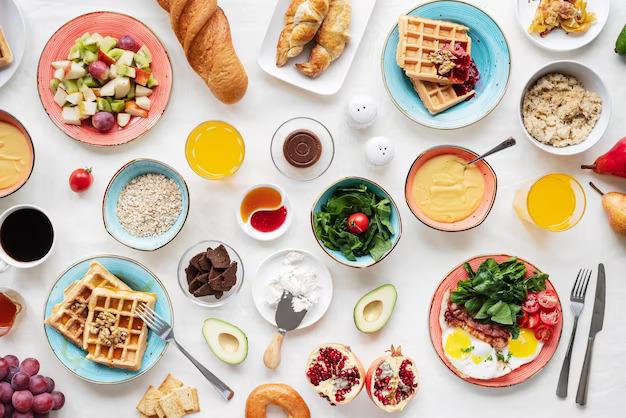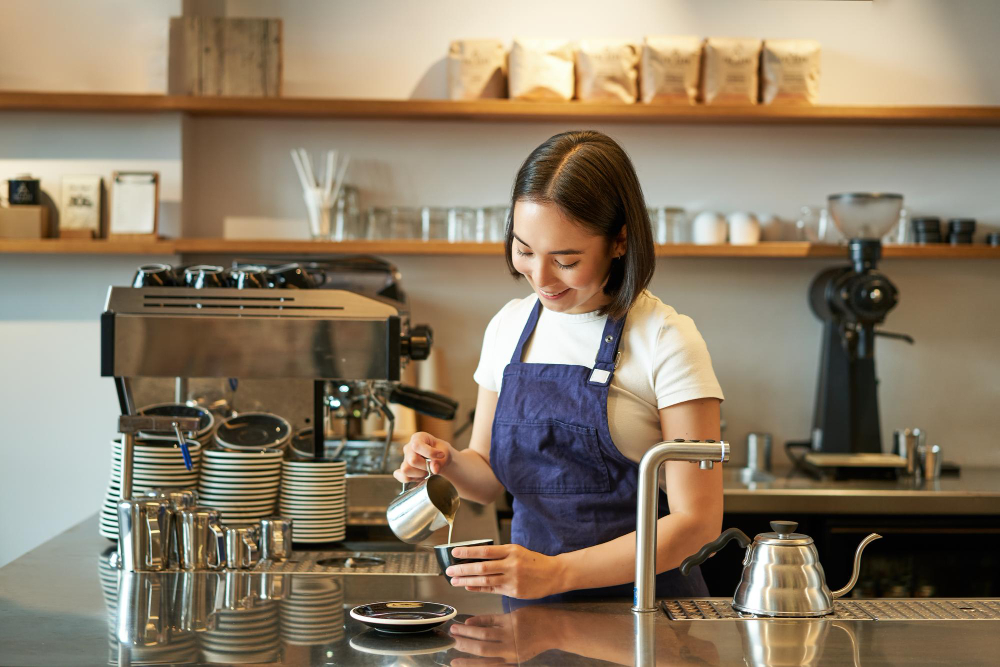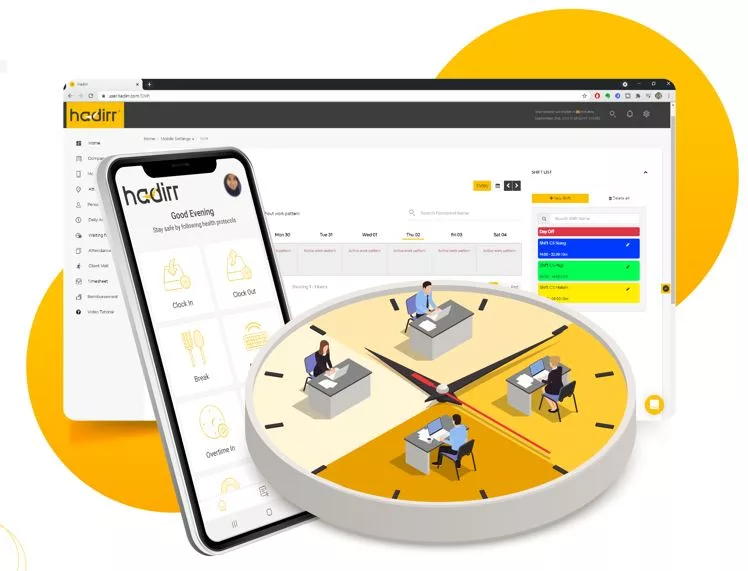9 Current Trends in Indonesia’s Food & Beverage Industry
Indonesia’s food and beverage industry (F&B) stands at a pivotal moment as 2025 unfolds. Once a sector enjoying steady 7–9% annual growth, it now faces a more intricate landscape shaped by shifting consumer preferences, macroeconomic pressures, and accelerating technological disruption.
Understanding Indonesia’s food & beverage industry trends is now essential for business owners, restaurateurs, and F&B operators intent on staying competitive in this evolving market.
Contributing 7.23% to national GDP in 2024, the food and beverage sector remains the country’s fifth-largest economic pillar. Yet growth projections have softened to around 5% in 2025, slipping from earlier forecasts of 6%. This slowdown requires sharper strategy and operational discipline across businesses of all sizes. Below are the forces currently defining this crucial industry.
1. The Shift in Consumer Demand: Health-Consciousness Meets Convenience

One of the most transformative shifts within Indonesia’s food and beverage industry is the surge in health-driven consumption. While this trend gained momentum during the pandemic, it has now become deeply ingrained in long-term consumer behavior.
Indonesians are increasingly prioritizing food and beverage health trends, seeking products that balance taste with clear nutritional benefits. Demand is rising for functional foods fortified with vitamins, plant-based protein alternatives, and products targeting specific wellness outcomes — from digestive health to improved sleep quality.
A striking data point underscores this shift: 99% of Indonesian consumers say they want to improve their dietary habits — a signal strong enough that 83% of F&B companies have begun reformulating products with healthier or more transparent ingredients, according to Food Industry Asia.
At the same time, the desire for convenience food and beverage solutions continues to accelerate. Rapid urbanization, demanding work schedules, and the normalization of online ordering have made ready-to-eat meals, frozen foods, and quick-service chains more appealing than ever. Cloud kitchens and QSR brands have grown rapidly by meeting this need for speed paired with quality.
Baca juga: Struktur Organisasi F&B Service dan Perannya
2. Digital Transformation as a Competitive Necessity
Digital transformation in Indonesia’s food & beverage operations has moved far beyond a “nice-to-have” — it is now a fundamental requirement for growth and survival in Indonesia’s evolving market.
Indonesia’s online food delivery and mobile ordering landscape is remarkable. The country now leads Southeast Asia, accounting for about 31% of the region’s total online food delivery market. This $4.6 billion sector underscores the pace and scale of digital food consumption nationwide.
F&B operators are rapidly integrating e-commerce platforms, delivery aggregators, and mobile ordering tools into their workflows. Cloud kitchens — facilities designed exclusively for online delivery — are reshaping operations in major metros like Jakarta. They allow established brands to expand delivery coverage without front-of-house expansion, while giving newcomers a low-capex pathway to test concepts and validate demand.
Digitalization on the consumer side is only part of the story. Operational digitalization is becoming equally critical. Attendance management systems and CRM tools are now essential for coordinating distributed staff, monitoring field sales activity, and ensuring operational reliability. Multi-outlet operators increasingly depend on integrated systems to track performance, orchestrate workflows, and generate real-time insights across locations.
3. Market Expansion Beyond the Big Cities

One of the most notable shifts in recent years is the movement of F&B brands into second and third-tier city expansion. While Jakarta, Bandung, and Surabaya remain attractive, competition is intensifying and rental costs continue to rise.
Secondary and tertiary cities offer significant untapped potential. Indonesia’s middle class — approximately 52 million people contributing 43% of national household consumption — is expanding fastest outside major metropolitan hubs. Many trending F&B concepts available in Jakarta are still limited in other cities, giving early entrants clear first-mover advantages.
Competition in these markets is also considerably lighter, allowing operators to secure better unit economics and achieve more cost-efficient customer acquisition. For many brands, expanding into smaller cities presents a far more scalable and sustainable growth strategy.
Baca juga: Jitu! Cara Memulai Bisnis F&B yang Menjanjikan
4. Sustainability as a Driver of Consumer Preference
Environmental consciousness has shifted from a niche concern to a mainstream purchasing driver. The sustainability and eco-friendly movement is accelerating quickly in Indonesia’s food & beverage.
Research shows that three out of four Indonesian consumers are willing to pay premium prices for products that address plastic waste and broader environmental issues. Around 46% expect companies to take concrete steps toward waste management improvements and stronger nutritional standards.
F&B business operators are responding through measures such as farm-to-table sourcing, zero-waste kitchen systems, sustainable packaging, and more transparent communication of environmental commitments. The rise of plant-based proteins, upcycled ingredients, and locally sourced products reflects this growing shift in consumer preferences.
However, greenwashing remains a serious concern. About 24% of consumers distrust environmental claims made by food brands. This dynamic elevates the importance of transparency — rewarding businesses with authentic sustainability initiatives while penalizing those with superficial claims.
5. Supply Chain Pressures and International Trade Dynamics
The Indonesia F&B export market challenges are intensifying due to shifting global trade dynamics. The introduction of 32% U.S. tariffs on select Indonesian products starting August 2025 creates substantial pressure, particularly for export-dependent SMEs.
This tariff structure places Indonesia at a disadvantage compared with Vietnam, Thailand, and Mexico, all of which benefit from more favorable trade terms. Export volumes to the U.S. are expected to decline significantly through Q4 2025. Still, the external pressure is prompting many businesses to rethink their strategies.
Leading exporters are diversifying through ASEAN markets, leveraging IA-CEPA and RCEP frameworks, and increasing domestic sourcing to reduce dependency on imported inputs. Input cost volatility remains a concern, with production costs projected to rise up to 5% by end-2025 as exchange-rate pressures affect raw material imports.
In this environment, supply chain resilience has become a critical competitive differentiator — rewarding companies with diversified sourcing and strong supplier networks.
Baca juga: Cara Meningkatkan Omset Penjualan Makanan
6. The Coffee and Specialty Café Phenomenon

Café culture and specialty coffee trends remain one of Indonesia’s strongest F&B growth engines. The sector is projected to grow at a 15.46% CAGR through 2030.
The rapid expansion of specialty chains such as Fore Coffee, Flash Coffee, and domestic leader Kopi Kenangan — now operating more than 900 outlets — highlights rising demand for premium coffee experiences beyond traditional kopi tubruk. Indonesian consumers increasingly value specialty brews, artisanal techniques, and high-quality beans.
Cafés today function as social hubs for work, meetings, and community gatherings. This cultural relevance gives the category resilience even during economic uncertainty. The specialty café boom is also moving beyond major metros, gaining traction in secondary and tertiary cities with strong enthusiasm from local consumers.
Baca juga: 7 Franchise Makanan di Bawah 100 Juta 2023
7. Full-Service Restaurants Maintain Resilience Through Social Demand
Despite the rise of delivery platforms and quick-service formats, full-service restaurants in Indonesia continue to dominate, holding 53.21% of the foodservice market in 2024.
This resilience is rooted in deeply ingrained cultural behavior. Dining out is a central social activity in Indonesia — from family celebrations to business meetings and community gatherings. Full-service restaurants play a unique social role that delivery or fast-food formats cannot replicate.
These establishments benefit from higher average checks, stronger upselling opportunities, and richer experiential value. The cultural commitment to communal dining continues to anchor strong, stable demand for full-service restaurants across economic cycles.
8. Emerging Business Models and Format Innovation
The landscape of innovative restaurant concepts in Indonesia is expanding quickly, introducing new business models and formats that complement traditional dine-in operations.
Dark kitchens and cloud kitchens enable operators to run multiple delivery brands from a single back-of-house facility, reducing real estate costs and enabling fast experimentation with new menus.
Health-focused restaurant concepts continue gaining ground among millennials and Gen Z, who prioritize functional ingredients, clean labels, and nutritional transparency.
Hybrid retail-foodservice formats blend packaged retail products with dine-in options, giving brands additional revenue channels and deeper customer engagement.
9. The Necessity of Technology-Enabled Team Coordination

Managing multi-outlet operations or distributed field teams of Indonesia’s food & beverage industry requires advanced digital coordination. Attendance and performance tracking systems have become essential for ensuring labor efficiency, consistent service delivery, and reliable workflows across locations.
Meanwhile, customer relationship management in food and beverage is evolving well beyond loyalty programs. Modern CRM systems help track sales pipelines, monitor field team performance, log customer interactions in real time, and centralize analytics for better decision-making. Integrated platforms give operators clearer visibility, stronger accountability, and measurable productivity improvements.
Baca juga: 5 Aplikasi Absensi Bisnis F&B Terbaik
Make Your F&B Operations More Efficient with Hadirr
Indonesia’s food & beverage industry in 2025 is defined by both immense challenges and unprecedented opportunity. The winners in this new era will be businesses that embrace digital transformation, respond strategically to consumer shifts, manage supply chain volatility, and expand intelligently into new markets.
In such a fast-moving landscape, operational excellence, sustainability, and real-time data-driven decision-making are no longer optional — they are fundamental to long-term competitive advantage.
Running a successful F&B operation requires seamless coordination at every level — from monitoring employee attendance to managing sales pipelines and customer interactions. This is exactly where Hadirr’s integrated platform delivers transformative value.
Hadirr empowers F&B businesses with:
- Real-time Attendance Management
Capture attendance via mobile devices using GPS and face recognition — a more accurate and hygienic alternative to fingerprint machines. Hadirr also functions as an Android-based attendance app, ideal for multi-location F&B teams that need fast, reliable workforce tracking.
- Sales Pipeline Management
Track field sales activities, customer engagements, and deal progress through powerful mobile CRM software designed for teams that are always on the move.
- Integrated Workforce Coordination
Manage shifts, client visits, task assignments, and outlet activities with full operational visibility — ensuring consistency and accountability across all units.
- Automated Reporting
Generate comprehensive activity summaries and performance dashboards instantly, minimizing manual admin work and enabling managers to act faster.
- Multi-location Oversight
Monitor attendance, task execution, and sales interactions across all outlets from a single, unified dashboard.
Whether you operate a single café, multiple restaurant branches, or a nationwide field sales team, Hadirr helps streamline operations, reduce administrative burdens, and improve productivity across the board.
Looking to elevate your F&B operations? Discover how Hadirr mobile CRM and attendance platform is helping hundreds of F&B businesses across Indonesia scale smarter and strengthen their competitive edge. Start your free trial now!


